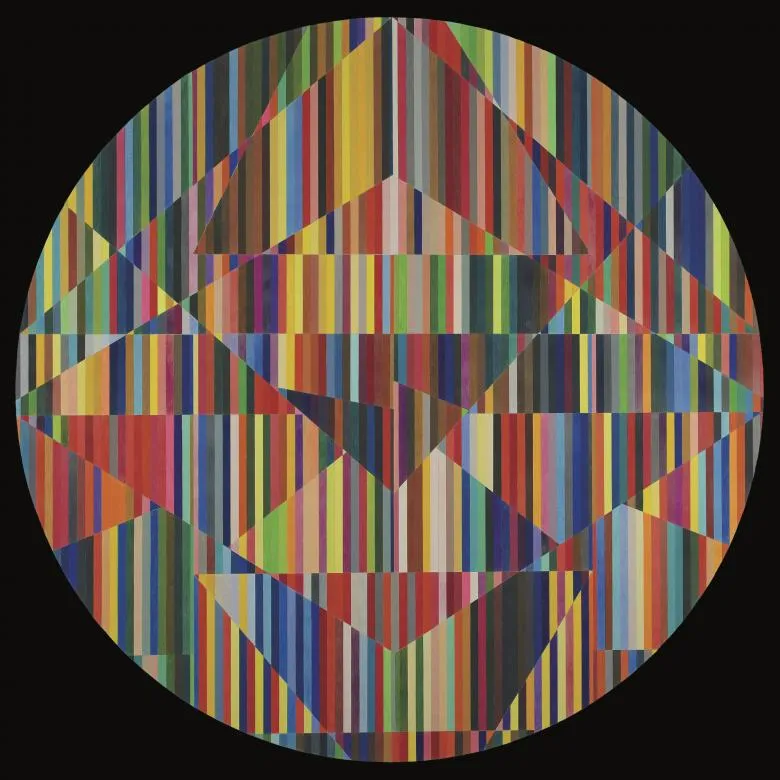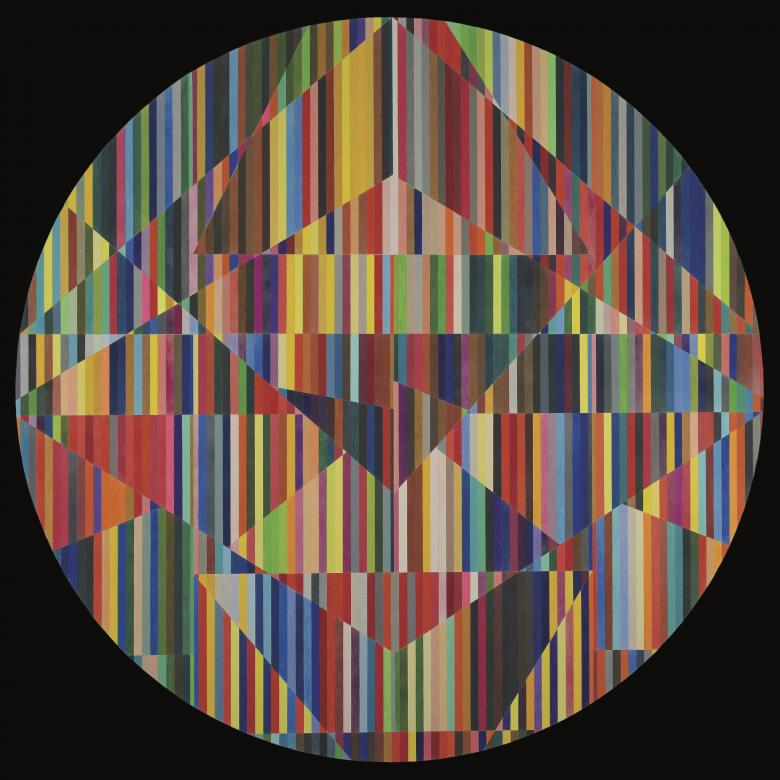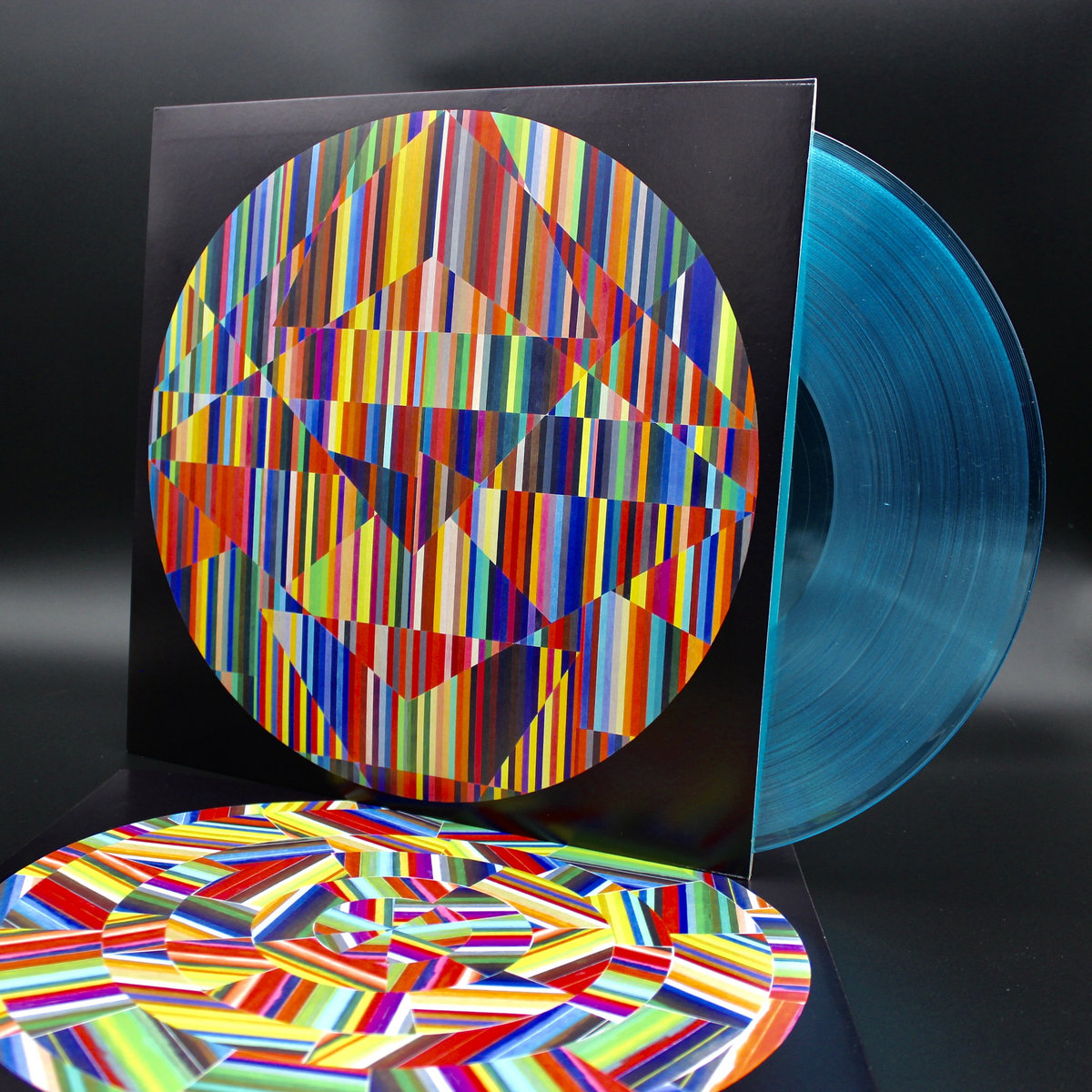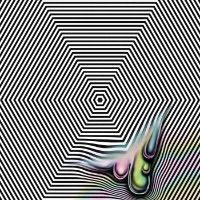- LP+DL (Color)
- Recommended =
- New Release
Sufjan Stevens
Reflections
Asthmatic Kitty - Cat No: AKR148lp-C1
- updated:2023-05-19
Sufjan Stevensニューリリース「Reflections For Two Pianos」。振付家ジャスティン・ペックの委託、ヒューストン・バレエの「Reflections」のための作曲、Timo AndresとConor Hanickによるピアノ作品。30分に渡る7曲。45回転仕様のターコイス色のクリア・バイナル。ダウンロード・コード付き。
Track List
The transluscent turquoise LP is housed in a printed inner sleeve and a full color jacket. Comes with DL card.
“I'm constantly thinking about bodies moving through space when I'm writing for ballet – that is what has informed this music, first and foremost,” says Sufjan Stevens on Reflections, his latest collaboration with choreographer Justin Peck. Originally commissioned and performed by Houston Ballet in 2019, Reflections was written for two pianos and eleven dancers. A studio recording of the seven movements is now available; engineered, mixed and mastered by Ryan Streber with performances by pianists Timo Andres and Conor Hanick. Released via Asthmatic Kitty Records, Reflections is, in Stevens words, about “energy, light and duality.” This piece follows on from several scores Stevens has created with Peck, including Year of the Rabbit (2012) Everywhere We Go (2014), In the Countenance of Kings (2016), The Decalogue (2017) and Principia (2019). “We have been working together for many years now,” says Stevens. “We respect and trust each other's work.” Peck and Stevens are currently collaborating on a dance theater piece based on Stevens’ songs from the acclaimed album, Illinois, to premiere at Fisher Center at Bard in June of 2023.
There is a long tradition of using pianos to accompany dance – whether it is during lessons at the barre or for rehearsals when hiring a full orchestra is prohibitively expensive – and Stevens was happy to further explore the instrument's capabilities. “Although I've never taken a lesson,” he says, “the piano was my first true love.” Self-taught as both a pianist and a composer, Stevens’ first instrument was the oboe, which he started playing in 5th grade. He played in orchestras from high school through college and listened voraciously to recordings of classical music alongside pop radio. He would often take breaks from the oboe by improvising on the piano, working out music he had heard in passing – pieces by Chopin, Rachmaninov and Bach. “I learned by ear, in a very rudimentary way, inspired by a wide range of music,” he says. “A lot of the work that I compose is anachronistic as it doesn't follow a genealogy of aesthetic. It can be a cornucopia of styles.”
That's the case with Reflections, where listeners may detect a hint of Debussy, Stravinsky, Philip Glass, and even Bruce Hornsby. Born in 1975, New York-based Stevens is best known as a singer-songwriter. He has recorded over a dozen solo and collaborative albums. He received Academy and Grammy Award nominations for Best Original Song for Mystery of Love, which was one of three contributions towards the soundtrack to Luca Guadagnino’s feature film “Call Me By Your Name”. Reflections is imbued with Stevens's broad experience in orchestral pop and electronica—but here the grandiosity is reduced to just two instruments.
The new recording benefits from lively and intelligent interpretations by pianists Andres and Hanick. The performances captured are bold, bright and skittishly virtuosic, cocooning the listener in glorious technicolor. Andres and Hanick bring percussive flair and a light touch to the fast-paced and varied score, digging into grumbling glissando, free-falling filigrees and dread-pan bombast with a joyful ease. Andres, a talented composer himself, is fully acquainted with Stevens' motivic development, having performed as the soloist on The Decalogue (Asthmatic Kitty Records), while Hanick—who has premiered over 200 new piano works himself—seems undaunted by any technical challenge thrown at him (of which there are many here—intricate counterpoint, cross rhythms and moving tonal centers, to name a few. The score is available via G. Schirmer Inc./Wise Music Classical).
The album artwork by Jessica Slaven – reminiscent in palette and form of the mid-century works by the Delaunays – is a quasi-graphic score. At first glance, the individual cells appear to be shifting, moving at odds with each other – but on closer inspection, each part is actually linked to the other. And so it is with Stevens's Reflections; every kaleidoscopic turn brings new shades and shapes, tightening the weave; twisting, refracting, mirroring.
There is a long tradition of using pianos to accompany dance – whether it is during lessons at the barre or for rehearsals when hiring a full orchestra is prohibitively expensive – and Stevens was happy to further explore the instrument's capabilities. “Although I've never taken a lesson,” he says, “the piano was my first true love.” Self-taught as both a pianist and a composer, Stevens’ first instrument was the oboe, which he started playing in 5th grade. He played in orchestras from high school through college and listened voraciously to recordings of classical music alongside pop radio. He would often take breaks from the oboe by improvising on the piano, working out music he had heard in passing – pieces by Chopin, Rachmaninov and Bach. “I learned by ear, in a very rudimentary way, inspired by a wide range of music,” he says. “A lot of the work that I compose is anachronistic as it doesn't follow a genealogy of aesthetic. It can be a cornucopia of styles.”
That's the case with Reflections, where listeners may detect a hint of Debussy, Stravinsky, Philip Glass, and even Bruce Hornsby. Born in 1975, New York-based Stevens is best known as a singer-songwriter. He has recorded over a dozen solo and collaborative albums. He received Academy and Grammy Award nominations for Best Original Song for Mystery of Love, which was one of three contributions towards the soundtrack to Luca Guadagnino’s feature film “Call Me By Your Name”. Reflections is imbued with Stevens's broad experience in orchestral pop and electronica—but here the grandiosity is reduced to just two instruments.
The new recording benefits from lively and intelligent interpretations by pianists Andres and Hanick. The performances captured are bold, bright and skittishly virtuosic, cocooning the listener in glorious technicolor. Andres and Hanick bring percussive flair and a light touch to the fast-paced and varied score, digging into grumbling glissando, free-falling filigrees and dread-pan bombast with a joyful ease. Andres, a talented composer himself, is fully acquainted with Stevens' motivic development, having performed as the soloist on The Decalogue (Asthmatic Kitty Records), while Hanick—who has premiered over 200 new piano works himself—seems undaunted by any technical challenge thrown at him (of which there are many here—intricate counterpoint, cross rhythms and moving tonal centers, to name a few. The score is available via G. Schirmer Inc./Wise Music Classical).
The album artwork by Jessica Slaven – reminiscent in palette and form of the mid-century works by the Delaunays – is a quasi-graphic score. At first glance, the individual cells appear to be shifting, moving at odds with each other – but on closer inspection, each part is actually linked to the other. And so it is with Stevens's Reflections; every kaleidoscopic turn brings new shades and shapes, tightening the weave; twisting, refracting, mirroring.






これまでも2012年の「YEAR OF THE RABBIT」や2014年の「Everywhere We Go」などで、長年に渡りコラヴォレーションをしてきた振付家ジャスティン・ペックの委託によるヒューストン・バレエの「Reflections」のための作曲。シンガー・ソングライター、電子音楽、フラフープ、天使の羽、キリストといったアイコン、コンポーザー、オーケストラのアレンジ、映像作家、数々の映画音楽も手がけ、様々なアプローチ、側面を持つ稀有の才能、対位法で曲を書くのが好きだというスフィアンが、2台のピアノと、11人のダンサーのために書いた7つの楽章。「エネルギー、光、二元性」をテーマにしているとのことです。Timo AndresとConor Hanickのピアノでスタジオ録音しアルバムとしてリリース。貼ったYOUTUBEもチェックしてみてください。 (サイトウ)